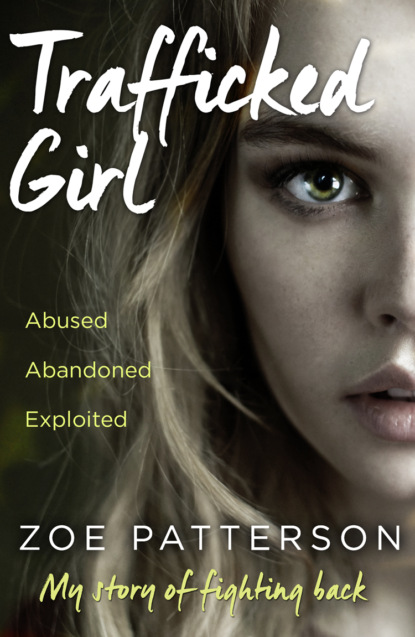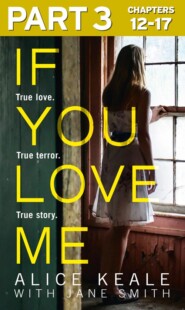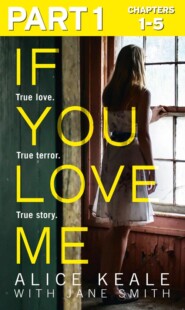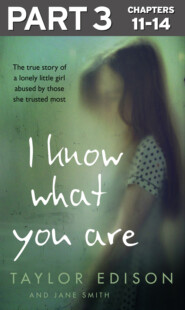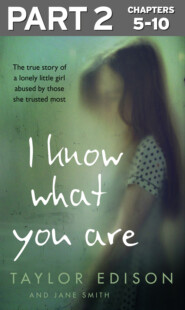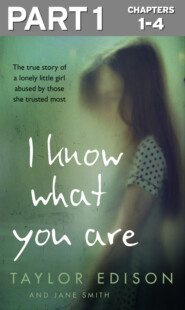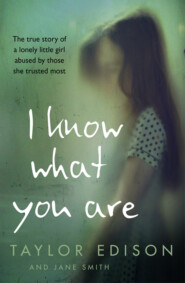По всем вопросам обращайтесь на: info@litportal.ru
(©) 2003-2024.
✖
Trafficked Girl: Abused. Abandoned. Exploited. This Is My Story of Fighting Back.
Настройки чтения
Размер шрифта
Высота строк
Поля
I think I had already started losing confidence at school and becoming more withdrawn by that time. Things at home were getting worse too, because Dad’s behaviour was becoming increasingly odd and he had started insisting he wasn’t well and phoning for an ambulance. I don’t know what he said to make the ambulance come – I think he complained about something to do with his heart. But they always did come, and then always left again after checking him out, saying there wasn’t anything they could do for him.
It got so bad in the end that Dad’s brother and his wife came to our house one day to try to talk to him about what was happening, but he wouldn’t let them do anything to help him. I don’t know if it was Mum who got in touch with them. If it was, it would only have been because he was driving her crazy. She certainly never showed him any sympathy or tried to talk to him about what was wrong. She was just angry with him all the time and would shout things at him like, ‘What the fuck’s up with you, you stupid bastard?’
Mum and Dad were arguing almost constantly by that time, which was another reason why I didn’t mind when Mum started to encourage me to stay in my room again. ‘It’s best this way,’ she would say when she brought my supper up to me, ‘so that you can avoid your dad.’ Which seemed to make sense.
In any case, all I really wanted to do was sleep. My brothers just laughed at me and said I was ‘mental’, while Mum seemed to enjoy watching me slide deeper and deeper into depression. I don’t know whether anyone realised there was actually something wrong with me. Perhaps not, because Mum didn’t ever speak to me except to feed the fear I had of my dad. In fact, she didn’t even say anything when I started to leave the food she brought up to my room, which at any other time would have made her really angry.
I don’t think I realised I was depressed either, although I was certainly aware that I was struggling to cope. Then, one day, I came home from school and Mum told me, ‘Your dad’s not well. He’s had a breakdown.’ She didn’t explain what that meant, although I think I guessed it might be something to do with ‘things not being right in his head’, which is what she always used to say about him, particularly after he was made redundant.
It turned out that he’d been admitted to hospital while I was at school that day, and even after Mum had taken my little brother Michael and me to see him there a few times, I still didn’t understand what was going on. I just remember bursting into tears at school on a couple of occasions, then talking to a teacher about it. What I didn’t ever tell anyone, however, is that one of the things I found really upsetting was waving goodbye to Dad after we’d visited him in the hospital, because it reminded me of waving to him as he left the house to go to work when I was a small child. It still makes me cry when I think about it today, and about how the dad I used to love turned into someone so totally different.
What was also very upsetting about those visits to the hospital was the fact that he didn’t acknowledge us or even seem to know we were there. So, after a while, Mum stopped taking us to see him. I know it sounds horrible to say that it was a relief not having him at home for those three months, but it was, because at least I didn’t have to worry about ‘wandering hands’ in my bed or listen to my parents shouting and fighting with each other.
Dad didn’t ever work again after that. He was quite a bit older than Mum and I think he was only a few years off retirement age when he had what she refers to as ‘his breakdown’. After he came out of hospital, he just sat around the house all day drinking, arguing with Mum, and saying things to me that I began to understand better as I got older and that made me afraid that one day he might stop just talking about it and sexually abuse me.
Chapter 5 (#u8c2e2541-c0fb-57b3-aad4-1f23760b0305)
Despite struggling to cope with everything that was going on at home, I did make some friends when I moved up to the high school, where I did quite well academically too. Then Dad’s sister died and he had to clear out her house, which caused more trouble at home and didn’t do anything to help his mental state, especially when he ended up having to bring a lot of her stuff back to our house and Mum gave him a really hard time about it.
Dad had been close to his sister. They’d kept in touch over the years, even though we didn’t see them very often, and after he came out of hospital and things got worse between him and Mum, he started going to stay with her at weekends and going out for meals with the cousins I’ve never really known. Eating out was something our family had never done and I think it was like another life for him, perhaps the sort of life he’d have been living if he hadn’t met and married Mum.
It makes me very sad to think that Dad might have missed the opportunity to be the person he could have been. And it must have been really difficult for him trying to cope with everything after his sister’s death without any support or sympathy from Mum, who used to scream at him when he brought stuff home, ‘You can’t bring all that crap in here. You can’t fit two houses into one, you stupid bastard.’
One of the things Dad brought from my aunt’s house was a step machine, which Mum suggested I should put behind my bedroom door at night. ‘I saw your dad watching you while you were asleep,’ she told me. ‘If you pull that in front of your door when you go to bed, he won’t be able to open it.’ So every night before I got into bed, I dragged the heavy step machine into place, then lay there listening for the sound of the door banging against it. I heard Ben asked Mum one day why I did it, to which she replied, ‘Oh just ignore her. She does daft things. You know that.’ But I still thought she’d allowed me to put the step machine in my room because she was trying to protect me and keep me safe from my dad.
When I was 12, I started having flashbacks. They seemed to be of real events that had occurred when I was younger and were always very disturbing, even though they didn’t make any sense. For example, in one of them I was wearing a nappy and sitting on the baby gate that used to block off the doorway between the living room and kitchen when I was a toddler. Mum was there, but it was Granddad who lifted me up and put me on top of the gate so that I was straddling it with one leg on either side. Then he pushed me down somehow, so that the top of the gate was rubbing against my private parts.
It sounds daft, I know, and I probably would have forgotten all about it by now if it hadn’t been for the fact that when I mentioned it to Mum some years later, she told me, almost defensively, ‘It was just a game. You loved him doing that. He did it all the time.’ So then I knew it was a real memory, although in view of everything else I knew by that time, it did seem like a very odd thing for her to have allowed him to do.
One of the other flashbacks I started having seemed to be related more to a feeling than to what was actually happening. Nan was there and I was sitting on my granddad’s knee – I think it was at my grandparents’ house – and Granddad had his hand up my skirt. During the brief moment when the image was clear in my mind, I had an overpowering sense of being upset and not wanting him to do whatever it was he was doing. But, again, it didn’t make any sense.
Once the flashbacks started, I began to remember other things too, like the bikini and other clothes Nan used to dress me up in when I was four or five years old, and her telling me, ‘You mustn’t say anything to anyone about these special clothes.’ Then Granddad took photographs of me standing with my legs open and doing other poses he told me to do, which weren’t the sort of poses I’d have done naturally as a little girl and which made me feel awkward and uncomfortable, although I didn’t know why.
I’ve still got one of the photographs Granddad took when I’d gone with him to visit one of his friends one day. It’s a perfectly innocent-looking photograph – I’m sitting on a piano stool with a little lad who was also at the house – and I never understood why it made my skin crawl whenever I looked at it, as though there was something creepy associated with it. So in the end I put it away.
Although those visits to my grandparents’ house stopped when I was five or six years old, I must have gone out with them sometimes after that, because I remember being with them and my little brother one day when Michael fell over. Granddad said he’d take him in to the toilet to clean him up, but I insisted on doing it myself, because I had a horrible feeling that if he went with Granddad, something bad might happen to him, although I couldn’t have said what.
For me, the flashbacks were the straw that broke the camel’s back – the final extra burden that made the weight of everything I was carrying too much to bear. So I did what my parents had always done and started trying to drown my sorrows in drink.
Although I was very scared of Jake, the first alcohol I ever drank was one of his cans of lager, which I stole from my brothers’ bedroom. It didn’t taste very nice, but the purpose of drinking it wasn’t to enjoy it, and it did stop the flashbacks for a while. So then I started stealing whisky from the bottles Mum always had in the house. I knew I was taking a huge risk and that she’d be really angry with me if she found out what I was doing. But, in fact, I was wrong, because when she did find out, she just laughed, poured out two glasses and handed one to me.
I was 12 years old, in my second year at high school, and happy to drink a glass of whisky with my mum because I thought it meant I had finally found some common ground between us that might enable me to start building the relationship with her I had always longed to have.
She gave me cola and whisky quite regularly after that, and would often bring a glass up to my room when I was sitting there alone in the evenings. By the time I was 13, she was giving me a 500-ml cola bottle full of equal measures of cola and whisky to take to school every morning, telling me cheerily as she handed it to me, ‘Remember, if you get caught, don’t tell them you got it from me!’ Which I took to be further proof that we were bonding, because it was the first time she had ever given me something I wanted, rather than doing everything in her power to make sure I didn’t get it.
Sometimes, after she started giving me whisky, she’d give me money to buy lager too. Then I’d hang around outside a local shop after school, waiting for some likely-looking person to come along who I could ask to go in and buy me a couple of cans, which someone always did.
Then, one day, Mum told me Dad had raped her while I was at school. ‘It’s your fault,’ she said. ‘He wouldn’t have done it if you’d been here.’ So I started skipping school sometimes, and because she was still encouraging me to stay in my room, particularly at weekends and during the school holidays, I would sit up there on my own drinking my bottle of cola and whisky and listening, in case my mother needed me.
Since my first day at nursery, school had been the one place I could escape to, and I’d always done quite well – until I started getting into trouble sometimes for being drunk, which I almost always was by the end of the day. Even then, nobody really did anything. And after a while taking whisky to school stopped being funny, like a teenage prank or a dare, and became something that isolated me from my friends and made me incapable of doing my work properly. Before long, I was drinking about 250 ml of whisky and cola every school day, plus strong lager in the evenings, or whatever else I could get someone to buy for me when I’d saved up enough money from the couple of pounds Dad sometimes gave me. He didn’t know I was spending it on drink because he was in his own world by that time, and having rarely smiled before his breakdown, never did so now.
Eventually, I was having to drink more and more alcohol to find the dead space inside my head where nothing mattered, and I would sometimes steal from Mum’s stash of whisky. But again, instead of being angry with me when she found out, she started buying me two bottles a week and occasionally, if she was in a really good mood, she’d let me have one of her cans of strong lager too. We didn’t ever sit and drink it together – the desire to bond was mine, not Mum’s – but she used to tell me it would help me not to feel so anxious about what I thought my dad might be going to do to me. So although she always laughed when he said lewd things to me, I told myself that she really did care. And when the alcohol stopped suppressing the flashbacks, I started self-harming.
I had only done it once before, tentatively, with the razor I’d found in the bathroom when I was ten. But soon I was cutting myself with anything sharp I could find – a knife from the kitchen, a Stanley knife, a razor, a set of compasses … I always kept the cuts and scars hidden, until one day – I suppose because I knew it was getting it out of hand – I rolled up one of my sleeves and showed my arm to my brother Ben.
‘Why?’ Ben asked me, his expression of shock turning to revulsion as he took hold of my wrist and gently rotated it.
I didn’t know how to explain the feeling I had every time I ran a blade across my skin and watched the blood ooze from between the cut surfaces. ‘Because it makes me feel as though I’ve exhaled after holding my breath for too long,’ I could have told him. But I knew he wouldn’t understand – I didn’t understand it myself. So I just shrugged, then pulled down my sleeve and said, ‘I don’t know.’
I can’t remember if I actually asked Ben not to tell Mum. Maybe not, if showing him the cuts was a cry for help and a way of passing on the responsibility for what I was doing to someone else. I don’t think he told her because he was trying to get me into trouble though. I think he was panicking and didn’t know what else to do. And a couple of minutes later she came stomping up to my room shouting, ‘What the fuck are you doing, you stupid bitch? There’s something wrong with you. You’re evil.’
‘Mum, don’t! Don’t shout at her.’ Ben appeared in the doorway behind her, his face still white with shock. But she ignored him, and continued her tirade of furious abuse.
Mum had always encouraged me to believe that the only place in my home where I was safe was in my bedroom, and as I became more anxious and less able to cope, it was the only place I ever really wanted to be. So I stopped going out with any of my friends – which I’d only done occasionally before then – and gradually became completely cut off from everyone.
I can remember thinking that I seemed suddenly to have lost all control of my emotions: if I was sad, I cried; if I was angry, I got into arguments with my teachers and with other kids at school. So it wasn’t long before no one wanted to have anything to do with me either, and after having been a relatively safe haven for the last nine years, school became somewhere I didn’t want to be, although I did continue to go on some days.
Apart from the one time I showed the cuts to my brother, I always kept my arms covered so that no one could see the ugly red lines that criss-crossed the skin or the scars they left when they healed. I think I had some vague idea that eventually someone would be able to see that I was depressed and desperate, and then I’d get the help I needed. But as the days turned into weeks, then months, and still nothing changed, I decided to show the cuts on my arms to my English teacher.
I didn’t want my parents to get into trouble, so all I told her was, ‘I’m just not happy at home.’ But although she was sympathetic, she said there was nothing she could really do to help me. So then I told my form tutor, ‘My mum hits me,’ and started going to the office at school sometimes to talk to the welfare officer. And although the welfare officer did apparently contact social services, they told her that whatever the problem was, the school would have to deal with it.
I’d added solvent abuse to the drinking and self-harming by that time, and was regularly getting into trouble at school. So, for me, the most immediate problem that needed to be dealt with was the fact that every time I got caught drinking or sniffing glue on school premises, my parents would be informed, my mum would beat me when I got home, I would run away, then I’d have to go home again because I had nowhere else to go, she would beat me again, I would think about taking my own life … and the vicious circle would continue.
The welfare officer did tell me that she was trying to get a social worker to come and see me, and when one did eventually come to the school to talk to me, I told her, ‘I’m not safe at home. I don’t want to live with my parents any more. I’ve always thought everything was my fault. But now I don’t know. I don’t think I’ve done anything to deserve being treated so badly. I keep thinking about killing myself. Not because I want to die. I just can’t think of any other way to make it all stop.’
After a lifetime of not daring to tell anyone about what was happening to me at home, it felt very scary to be talking about it at all. In any other circumstances, I simply wouldn’t have taken the risk, because of what I knew my mum would do to me if she found out. But I truly believed that if I told the social worker, she would take me somewhere I’d be safe and cared for – maybe even loved. So it felt like the end of the road when she said, ‘I’ll see what I can do,’ then everything continued the way it had always been.
I think my teachers were doing their best to help me – some of them, at least – by informing social services about any incidents they became aware of, and in the end I was assigned a social worker called Valerie Hampton, who came to talk to me at home.
A very tall woman in her mid- to late twenties with broad shoulders, big hands and feet, short hair that was dyed a dark henna colour, and a very distinctive nasal voice, my first impression of Valerie Hampton was that she saw herself as the sort of social worker who ‘gets’ young people. To me though, however friendly she might have been, it doesn’t seem very logical to expect a child to be able to talk openly about the reasons they feel unsafe at home while they’re at home! I still felt very protective of my mum too, so I didn’t say much except what I’d said before to my form teacher – that Mum sometimes hit me.
‘Huh! She’s the problem,’ Mum told the social worker, glaring at me as she spoke. ‘She’s the one who causes all the trouble in this family. There’s something wrong with her. She lies about everything.’
It’s the sort of thing you’d probably expect anyone to say when they’ve been accused of something like that. But Mum must have been more convincing than I was, because I found out later that Valerie Hampton decided I was attention seeking and making it all up, although she didn’t seem to ask herself why. Perhaps what also helped to persuade her was my nan getting involved by phoning social services and telling them I was mentally ill, which I also only discovered later.
Eventually, however, I was assessed by someone from Child and Adolescent Mental Health Services (CAMHS), who said I had reactive depression – I think that’s what they called it – but that they couldn’t help me until I was in a safe environment. And still nothing was done. So I ended up being off school for about eight weeks, during which time I spent every day and night in my bedroom, sleeping or just staring into space, knowing I couldn’t cope any more, but not being able to think of any way that I might be able to change the situation I was in.
Once, when I’d begun to feel like a caged animal and on the verge of a panic attack, I ran away to a friend’s house and asked if I could stay there. Her parents said I could, then phoned Mum to let her know where I was. So then she and Dad came round, and as soon as she walked in the front door she kicked off, telling my friend’s parents, ‘There’s something wrong with Zoe. She needs to be put in an institution. I don’t know why you’re even bothering with her.’ While Dad just kept saying, ‘It’s all right, Zoe. You can come home. No one’s going to hit you.’ Which isn’t something you’d expect a parent to have to say to their child, although the possibility that by saying it he was rather proving what I’d said didn’t seem to cross his mind.
In the end, I stayed with my friend and her family for a couple of days before going home for a few days, then running away again to stay with another friend, whose parents would have let me live with them for longer if I hadn’t been drinking and had all the other ‘issues’ my social worker told me it wasn’t fair to inflict on them.
I found out later that my friend’s mum had told my social worker she was concerned about me because I seemed to be withdrawn and got very anxious whenever they asked me to sit in the living room with them. The fact was, I was so used to being unwanted by my own family that I felt like an intruder in someone else’s home and didn’t believe they really wanted me to be with them. I feel sad about that now, because her parents were very good to me, and I wasn’t able to accept their kindness.
After Valerie Hampton came to our house, social services did an assessment of Mum and Dad too. I’d told Mum about the flashbacks I’d been having of some of the things Granddad used to do to me, and she told the social worker, perhaps because she wanted to cover herself in case any of it ever came out. I can’t think of any other reason why Valerie Hampton asked me one day if I knew that baby girls get pleasure from rubbing their genitals against the straps of their prams. I hadn’t ever said anything to her that might have prompted her to ask me such an embarrassing question. So maybe Mum had given her a doctored version of what I’d said about Granddad.
I don’t know whether Mum was very clever or whether the social worker was just naive – perhaps a bit of both, because social services were certainly fooled into believing that everything that happened at home was my fault. Which isn’t surprising, I suppose, when you consider the fact that Mum had made me believe it too, for 13 years.
‘I’ve given her a good hiding in the past,’ she told the social worker, presumably realising it was better to admit some of the things I’d talked about rather than deny them all. ‘It’s not us though,’ she said. ‘There’s something wrong with her. She needs medical help. She spends most of her time barricaded in her bedroom.’ Which seemed particularly unfair, when barricading myself in my bedroom had been her suggestion, after she’d done everything else she could think of to make me fear and suspect my dad.





